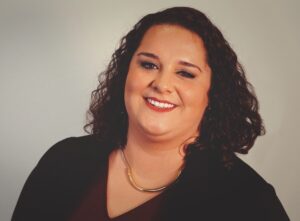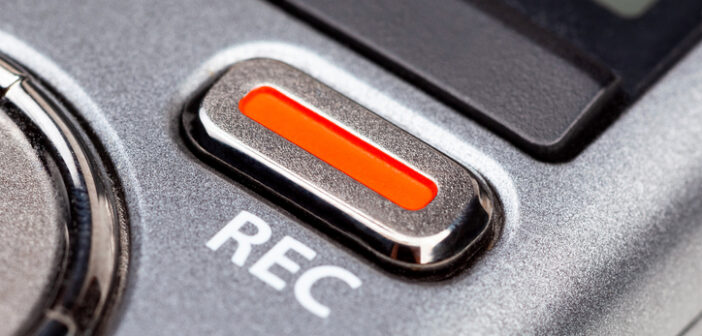BY GEORGIA REINER, MS, CPHRM
A case manager accidentally discovers that a recording of himself giving a patient education is posted on the Facebook page of a patient’s family member. Another case manager receives a notice that she is being sued for disparaging comments she made about a patient without knowing that the patient was recording her on his cellphone after he left the room.
As social media has grown, so has the number of recordings and postings online. Most case managers now know the dangers of posting patient-related content online, but what happens when the reverse occurs and a patient or patient family member posts videos, photos or content about the case manager? What rights does the case manager have? And what happens when a device captures a case manager’s inappropriate comment? Is the case manager open to litigation?
These are not hypothetical questions. A 2018 survey of 52 registered nurses found that several had experienced unapproved postings related to their professional actions, leaving them feeling “violated” and “disrespected” (McGill, Loveless, & McGill, 2019).
Understanding the issues surrounding secret recording can help you avoid litigation and possible damage to your career and emotional health.
Ubiquitous recording
Recordings are occurring in a wide variety of settings. Patients and families may be recording interactions in hospitals, in long-term-care and assisted-living facilities and in the home. In some cases, these recordings may be sanctioned by the state. For example, many states have laws that require residential care facilities to allow residents to install monitoring equipment (“granny cams”) to document care. Requirements associated with the law may include obtaining consent from the patient’s roommate, posting a sign that recording is in progress, and making the resident responsible for camera equipment costs (Spanko, 2018).
Some patients may also utilize voice-control or “smart speaker” devices such as Amazon Echo, Apple HomePod or Google Nest. These devices may not just be playing music or telling patients about the weather; they may also be recording what people in the room are saying.
Unfortunately, case managers may not know they are being recorded. A survey of the general public in the UK found that 15% had secretly recorded a clinic office visit. The most common reason was simply to improve understanding of medical information and to share with family members (Elwyn, Barr, & Cataldo, 2017).
In the US, these types of recordings may violate wiretapping laws. The federal wiretapping laws (18 U.S. Code § 2511) only require one party to agree to a recording, but many states have “all-party” requirements, which means all parties must consent to the recording. Typically, the more restrictive state law would take precedent over the federal law (Sigman, 2019).
When private goes public
When documentation of healthcare professionals behaving inappropriately goes public, it can result in significant professional harm, including possible legal action, for those involved. In 2015, for example, a patient used his phone to record post-discharge instructions prior to undergoing a colonoscopy. He neglected to turn off the recording and was later shocked to hear disparaging comments made by the surgeon during the procedure, while the patient was under anesthesia. The patient subsequently won a $500,000 lawsuit (ABC13 Eyewitness News, 2015).
Reducing recording risks
Both individual case managers and their employers can take steps to help avoid legal action stemming from recordings made by patients and families.
Healthcare Organizations
- Establish policies regarding use of cell phones, tablets, smart speakers and other devices by patients and families.
- Educate staff and volunteers about photo, video and recording rules and policies.
- Post notifications for patients and families to see that restrict use of cell phones and other devices capable of recording.
- Provide patients and families with written information about organizational policies related to recording.
Case Managers
- Survey the room before delivering care. Note if there are any cell phones, tablets or voice-activated devices present.
- Request that devices be removed or turned off. Let patients know that devices can be distracting to care delivery and refer to relevant organizational policies as needed.
- Do not pose for photos with patients or patient family members; these photos could end up on social media. If a family member is making a recording of patient care, ask them to stop, explaining that they are violating the patient’s right to privacy under the Health Insurance Portability and Accountability Act.
- Report inappropriate social media posts about you. If you see such a post, take a screen shot or record the posting (for evidence in any potential court case) and report the posting to the social media outlet.
- If you become involved in a lawsuit related to a recording showing you engaging in inappropriate behavior, be honest with your professional liability insurer and attorney about the entire scope of the recording. For example, just because only part of a video was posted online doesn’t mean that additional footage won’t appear during a court case.
- Keep in mind that good communication helps reassure patients and families that quality care is being delivered, removing the motivation to record in order to ensure the patient is receiving excellent care.
Sources: Fridel A. Trending topics in healthcare litigation. Presentation. November 15, 2019; McGill M, Loveless B, McGill M. Social media in healthcare: a 360-degree view. Am Nurs Today. 2019;14(10):25-26.
Failing to speak up when inappropriate behavior occurs does not protect you from legal action. For example, the anesthesiologist in a video created by a surgeon who was dancing during surgery was named in a lawsuit (WBS-TV2, 2019).
In the courts
The admissibility of recordings in court cases varies by jurisdiction and legal parameters surrounding these issues are still being developed. It is also important to be aware that federal and state legal thresholds may differ, affecting court decisions.
Recordings may also impact the types and number of damages awarded as a result of legal action because of the perception that a recording reveals a lack of “feeling” by the defendant. This perception can also be an issue when it comes to settlements. For example, if minor patient harm occurred but the case manager is heard making disparaging comments about the patient, there might be a push for a higher award.
Self-protection
Case managers can take steps to protect themselves from negative consequences of being recorded. (See Reducing recording risks.) Many professional ethics codes note that just as healthcare professionals must respect professional boundaries and patients’ rights, healthcare professionals are similarly owed respect. For example, Provision 5 of the American Nurses Association (ANA) Code of Ethics for Nurses with Interpretive Statements notes that “…the same duties we owe to others we owe to ourselves” (ANA, 2015). You should expect patients and families to respect your privacy in the same way you respect theirs. Setting boundaries related to recording is a reasonable step to take (Olson, 2018). This, combined with not making inappropriate comments that could be detected by voice-control devices or taking inappropriate action with patient information online, will help you avoid litigation while providing quality care.
References
ABC13 Eyewitness News. Patient records doctor’s insults during surgery, wins $500,000 lawsuit. 2015. https://abc13.com/health/listen-patient-records-doctors-mocking-him-during-surgery/802568.
American Nurses Association (ANA). Code of Ethics with Interpretive Statements. 2015. www.nursingworld.org/practice-policy/nursing-excellence/ethics/code-of-ethics-for-nurses/coe-view-only.
Elwyn G, Barr PJ, Cataldo M. Can patients make recording of medical encounters? What does the law say? JAMA. 2017;318(6):513–514. doi:10.1001/jama.2017.7511.
Fridel A. Trending topics in healthcare litigation. Presentation. November 15, 2019.
McGill M, Loveless B, McGill M. Social media in healthcare: A 360-degree view. Am Nurs Today. 2019;14(10):25-26. https://www.myamericannurse.com/wp-content/uploads/2019/10/ant10-Social-media-919.pdf.
Olson LL. From the ethics inbox: when a nurse’s privacy is breached by social media. Am Nurs Today. 2018;13(1):40.
Sigman LJ. State, federal laws govern whether doctor visits can be recorded. AAP News. 2019. www.aappublications.org/news/2019/04/30/law043019.
Spanko A. ‘Granny cams’ represent legal minefield for skilled nursing operators. Skilled Nursing News. 2018. https://skillednursingnews.com/2018/10/granny-cams-represent-legal-minefield-skilled-nursing-operators.
WBS-TV2. 10 new lawsuits filed against ‘Dancing Doctor’. 2019. www.wsbtv.com/news/local/douglas-county/10-new-lawsuits-filed-against-so-called-dancing-doctor-/898664465.
Disclaimer: The information offered within this article reflects general principles only and does not constitute legal advice by Nurses Service Organization (NSO) or establish appropriate or acceptable standards of professional conduct. Readers should consult with an attorney if they have specific concerns. Neither Affinity Insurance Services, Inc. nor NSO assumes any liability for how this information is applied in practice or for the accuracy of this information. Please note that Internet hyperlinks cited herein are active as of the date of publication but may be subject to change or discontinuation.
This risk management information was provided by Nurses Service Organization (NSO), the nation’s largest provider of nurses’ professional liability insurance coverage for over 550,000 nurses since 1976. The individual professional liability insurance policy administered through NSO is underwritten by American Casualty Company of Reading, Pennsylvania, a CNA company. Reproduction without permission of the publisher is prohibited. For questions, send an e-mail to [email protected] or call 1-800-247-1500. www.nso.com.

Georgia Reiner, MS, CPHRM, is a risk analyst for Nurses Service Organization (NSO) in the Healthcare Division of Aon Affinity Insurance Services, Inc. She has worked in the healthcare insurance business for over 5 years, educating healthcare providers on professional liability issues and risk management principles. She is also a regular speaker and published author on quality, safety and risk management topics affecting healthcare.
IMAGE CREDIT: ISTOCK.COM/TOMASZ ŚMIGLA


